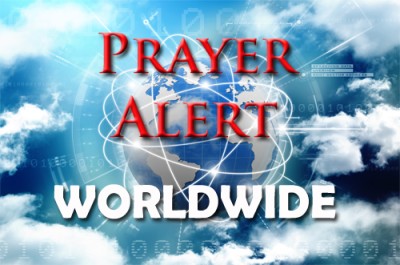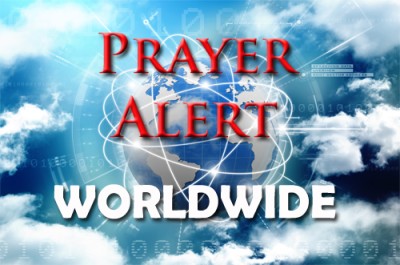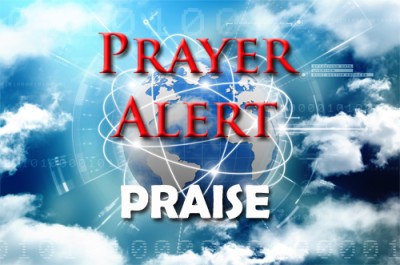Uganda: Ebola quarantine extended
01 Dec 2022Uganda has recorded 141 infections since the outbreak of Ebola was declared on 20 September. President Museveni has extended by 21 days a quarantine placed on Mubende and Kassanda districts, at the epicentre of the outbreak. Movement in and out of central Uganda is restricted up to 17 December. The aim of this extension is to sustain the gains in control of Ebola which have been made, and to protect the rest of the country from continued exposure. Mr Museveni said, ‘It may be too early to celebrate any successes, but overall, I have been briefed that the picture is good.’ 55 people have died since the outbreak was declared. Although it is gradually being brought under control, he said the situation is ‘still fragile,’ adding that the country’s weak health system and circulation of misinformation about the disease were still a challenge.
Hawaii: world's largest active volcano erupts
01 Dec 2022Mauna Loa volcano is the largest active volcano in the world. On 1 December the alert level code was upgraded to red, the highest classification. The lava flow is mostly contained within the summit, but residents have been placed on alert and warned about the risk of falling ash. The US Geological Service said the situation could change rapidly. The eruption of Mauna Loa has two active fissures feeding lava flows downslope, while other lava flows are travelling north. They are reaching a relatively flat area and beginning to slow down; as this happens, the lava will spread out and inflate. Pray for the safety of the many visitors rushing to observe the spectacle. Pray for the residents worried about emergency response and resources that may be available to assist those at risk. Updates here
Brazil: fatal landslide
01 Dec 2022At least two people have died after heavy rain caused a mudslide which engulfed the BR-376 motorway in Parana state. The whereabouts of around thirty people are unknown. Several vehicles are thought to have been buried under the rubble on the coastal road. Aerial pictures show lorries lying on their sides hanging perilously over the edge of the motorway. Social media footage showed motorists battling through muddy flood water before the landslide. Some people online have asked why the road was not closed earlier. Access to a major port for grains and sugar shipments has been cut off. About 80% of goods exported from Paranagua, the country's second-biggest port for grains and sugar, are delivered by truck. The state authority has declined to estimate the total losses.
Canada: deforestation rules 'burdensome'
01 Dec 2022Ailish Campbell, Canada's ambassador to the EU,said its proposed rules to curb deforestation add ‘burdensome’ requirements and will hurt trade between Canada and the EU. The rules aim to limit the trade of products linked to deforestation worldwide. Climate campaigners have called Canada's resistance to the rules shocking. In a letter to the EU, Ms Campbell says Canada supports the objectives of the proposed deforestation regulation, but is greatly concerned that some elements will cause trade barriers for Canadian exporters. She asks for several revisions to the regulation, including providing a delay and a clearer definition for what falls under forest ‘degradation’ - a practice that climate advocates say is widely seen in Canada. In March, over 90 scientists penned an open letter to prime minister Trudeau outlining concerns about the rate of industrial logging in old-growth forests, which they said had ‘unique and irreplaceable ecological values’.
India: Modi scolds Putin
01 Dec 2022Narendra Modi, India's prime minister, has called for the Ukraine war to end. He warned that geopolitical struggles could ‘lead to humanitarian crises’. In a thinly veiled swipe at the Russian president, he said, ‘Our era need not be one of war. Indeed, it must not be one!’ The comments echoed his previous criticism of Mr Putin in September. India has abstained from condemning Moscow’s actions in Ukraine at the UN as the government balances its ties with Russia and the West, but has shifted its stance as the war intensifies and energy and food shortages pose greater global threats. Mr Modi said the world’s greatest challenges ‘can be solved not by fighting each other, but only by acting together’. India hosts the next G20 summit, whose theme is One Earth, One Family, One Future.
Christian climate activists
25 Nov 2022Christian climate activists have been protesting at Church House, Westminster, to highlight the Church of England's strategy of continuing to invest in fossil fuels. They also left handprints of fake blood and oil on the walls of offices of BAE Systems, Britain's arms manufacturer, to protest against their policy of supplying weaponry to conflicts; this increases the vulnerability of people living on the front lines of climate change. These actions follow the conclusion of COP27, which is being widely criticised for the presence of representatives from oil and gas companies. The activists believe the Church should show moral leadership in rejecting profits from investments in companies that continue to fuel climate suffering. Also, behind government decisions to double down on fossil fuel development (sign off new oil exploration licences and allow big energy companies to rake in record profits) lies a network of companies and organisations which are profiting from this destructive path.
Qatar: World Cup players dedicate goals to God
24 Nov 2022Ecuador, one of four Latin American teams in the 2022 World Cup, is drawing attention not only for its impressive start to the tournament but also for the way the players are celebrating their goals. On 20 November former West Ham player Enner Valencia scored twice, securing the win against host team Qatar. Both goals were dedicated to God as the players came together to form a circle and fall to their knees before pointing and looking up to the sky to celebrate. It is understood most of the team’s players are Christians, with several videos on social media showing them praying before each match.
Letitia Wright talks about Jesus
24 Nov 2022BAFTA actress Letitia Wright, who has starred in Black Panther, Doctor Who, and Black Mirror, is also vocal about her faith in a devotional YouVersion Bible app. She posted about her faith on Instagram and has turned down certain roles in her career. In an interview, she explained how her faith sustains her in her career and that she had temporarily stopped acting for a few months to focus on God. She said that her faith in Christ has kept her alive, but some people advise her to keep it to herself. ‘I've had people tell me to stop talking about Jesus and to keep things private that the world may not agree with. I'm not trying to force anything on anyone. I'm sharing my truth because I probably wouldn't have been able to cope without Jesus. If someone saves you and brings light and love into your life, you want to share that, not hide it.’







